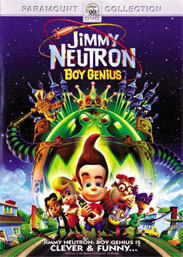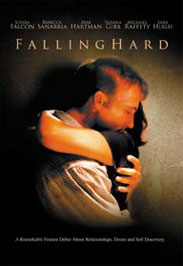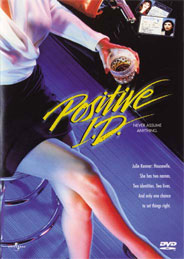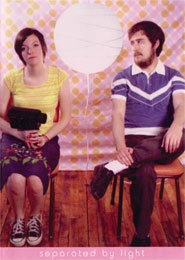| Solving the college mystery | Entrepreneurs extraordinaire | Ivy League Maverick |
| Home Forethought Campus Buzz Feature Stories Re:Search The Score Alum News Yesteryear | ||
To say that Hollywood has opened a branch on South Cooper Street exaggerates by a few millimeters, but when it comes to training filmmakers, Marlon Brando’s character in On the Waterfront would declare UT Arlington “a contender.” So does Texas Filmmaker’s Showcase Director Alfred Cervantes.
"I am a big fan of the program," Cervantes said. "It’s small, but the students do some of the best short film work in Texas."
 |
| Alumnus Keith Alcorn created nearly all the film's characters. |
Films by UT Arlington students and alumni appear at major festivals like Cannes and Munich. They win national awards and, in the case of 2001 liberal arts Distinguished Alumnus Keith Alcorn, Emmy and Oscar nominations and millions of young fans from Saturday-morning television.
Alcorn’s first big success was Santa vs. The Snowman for ABC Television in 1997, followed by the Emmy-nominated Olive, the Other Reindeer. His feature-length film Jimmy Neutron: Boy Genius garnered an Oscar nomination for best animated feature in 2002, losing out to Shrek.
Last summer, recent grads scored contracts with national distributors. Vanguard Cinema released Matt Kurtz’s first feature film, Falling Hard, on DVD in June. Judges at the Fort Worth Film Festival called the film "an engaging romantic drama" and an "impressive first feature," and they praised Kurtz for pulling "engaging performances" from his actors.
Kurtz, who earned his bachelor of fine arts in 1997, and producer Jason Kroft, who graduated in 1996, shot the film in 22 days, to the amazement, Kurtz says, of seasoned professionals working with them. He attributes the timely finish to the “amazing” training he received from film program founder and writer-in-residence Andy Anderson.
 |
| Written and directed by alumnus Matt Kurtz. |
"Andy drilled into our heads the importance of preparation, preparation, preparation—before you begin shooting," Kurtz said. "We had story-boarded the entire film before we began, and we never slipped behind schedule, not one time."
Another film, Wednesday, written and directed by 2004 graduate Justin Hilliard, was shot in Spain and entered the final postproduction phase in June.
June was a big month for UT Arlington’s budding Spielbergs. Early on, students and alumni screened two short films, Separated by Light and Ana’s House, at the Texas Filmmaker’s Showcase in Los Angeles. Professional filmmakers in Texas chose the films from more than 100 entries. Then, mid-month, Separated by Light—which also screened at the Cardiff Film Festival in Wales, the Karachi Film Festival in Pakistan and on KERA Public Television—won a Golden Telly, the premier award honoring independent film and video productions.
Cervantes said the Texas showcase each year attracts 110-140 entrants who are judged by a panel of producers, writers, directors and film critics. Between five and 11 then advance to Los Angeles. UT Arlington maintains a presence among the select few.
Hollywood high life
Professor Anderson said the Texas Filmmaker’s Showcase provides an unbeatable introduction to the film industry, including being flown to LA and “chauffeured around in limousines” to meet studio executives, agents and producers. The young filmmakers attend a reception with industry professionals to discuss financing, distribution and other aspects of the business.
This year’s showcase winners were a diverse duo: a serious film and a more lighthearted piece. Ana’s House, about a young Mexican mother who finds herself trapped in an abusive marriage and chooses freedom over her children, was written and directed by Olivia Saldivar and produced by Johnny Rutledge, both 2005 graduates.
Separated by Light, written and directed by Sai Selvarajan (’01 BFA), tells of a young woman who’s convinced she is a great filmmaker. She recruits a “lovable goof” to help document what makes people “free.” As the duo compile their interviews, the project falls apart, so she turns the camera on herself and ultimately learns what she has missed in her quest. Alumnus Christopher Simpson and Rutledge co-produced the film.
 |
| Produced, written and directed by art professor Andy Anderson. |
These competitions routinely pit UT Arlington students against graduate students from the country’s top film schools.
"And our undergraduate program is not even a department. It is a series of classes within an art department," Anderson said. "Its strength lies in the fact that it is so hands-on."
The program enables students to do production work their freshman year and have three classes’ worth of experience before starting individual projects. Every two years, the department offers a fully funded feature film experience. The films that emerge get screened at the Directors Guild of America in the highly competitive Texas Independents Showcase.
As the UT Arlington reputation grows, so does enrollment. The program began in 1970 with no students and now has 200, with about 600 coming though in a five-year period. They arrive from all over the United States and as far away as Taiwan.
Their successes perhaps are not surprising in light of the program’s faculty. Anderson, for one, destroys the George Bernard Shaw axiom, "He who can, does. He who cannot, teaches."
He has written and directed four independent feature films, including the hit Positive I.D. His Drive-by Shooting is in the permanent collection of the Australian Center for the Moving Image. Learning Curve has garnered international attention as well.
 |
| Written and directed by alumnus Sai Selvarajan. |
Anderson’s work is in the permanent collection of the Museum of Modern Art and has been exhibited at the Carnegie Museum of Art and the Nelson Atkins Museum. His films have shown at the San Francisco International Independent Film Festival, Sundance Film Festival, Moscow Film Festival, Ann Arbor Film Festival, Houston Film Festival and Kansas City Film Jubilee, and at most of them have won awards. His films have shown at the Film Society of Lincoln Center and the Center for Photographic Studies, and on every major network and cable channel.
He also has written for Universal, Paramount Pictures, Hyperion Pictures and Eddie Murphy Productions.
No substitute for know-how
"I would not hire anyone who has not actually made their living in the art form," Anderson says. "You can’t ask a student to stay up working all night and give up any claim to a normal life unless you are doing the same thing."
Case in point: Associate Professor Barton Weiss is an award-winning independent film and video producer, director, editor, educator and consultant. He produces Frame of Mind, a monthly show of independent film and video for KERA/KDTN Public Television in North Texas. He’s on the board of directors (and past president) of the Association of Independent Video and Filmmakers in New York, past vice president of the Texas Association of Film and Tape Professionals, founder and past president of the West Virginia Filmmakers Guild, artistic director of 3 Stars Cinema and co-founder of the Dallas Video Festival and the Video Association of Dallas.
Weiss’ time with those organizations gives him a vantage point from which to evaluate his students’ work, which he says is widely acknowledged as the best in the area, largely because the students don’t shy from difficult subjects.
"They create film projects that connect to their lives and tackle issues like substance abuse and domestic violence, instead of the all-too-familiar subjects like surfboarding or Saturday Night Live spoofs produced by young filmmakers from other schools," he said.
Weiss calls the film program "incredibly unique."
"The University of Texas at Austin has a great, highly acclaimed film school. It has state-of-the art equipment. But the students don’t get into production classes until their junior year. And some of these kids have been making films since they were 7 years old."
He says lack of equipment and limited funds are all that prevent the UT Arlington program from moving beyond being the "biggest fish in its pond" to being more widely recognized worldwide. Anderson concurs.
"In the basic intro class, you have 60 students and 20 cameras," he said, "and that creates a bottleneck."
Writer, director and independent filmmaker Narcel Reedus, who has produced award-winning documentaries, short films and scripts, joined the faculty last year.
He has one more item for the wish list.
Reedus would like to see two introduction to film and video classes. He envisions one as an overview for nonmajors, "tourists" who’d like to know more about the world of film and video. A course for majors would be for those with a real commitment to the art.
"Those are the students I love to teach," Reedus said. "When you have great respect and passion for the art form, you cannot be uncommitted or whimsical about it."
Passion. Commitment.
It’s enough to make the UT Arlington film program a contender.
— Sue Stevens
| Archives
| Alumni Association |
Giving to UTA | UTA
Home Copyright © 2005 UTA Magazine. All rights reserved. |
